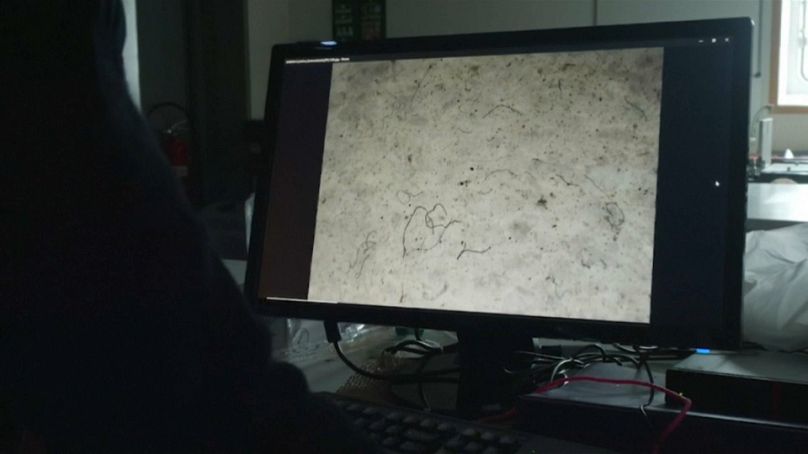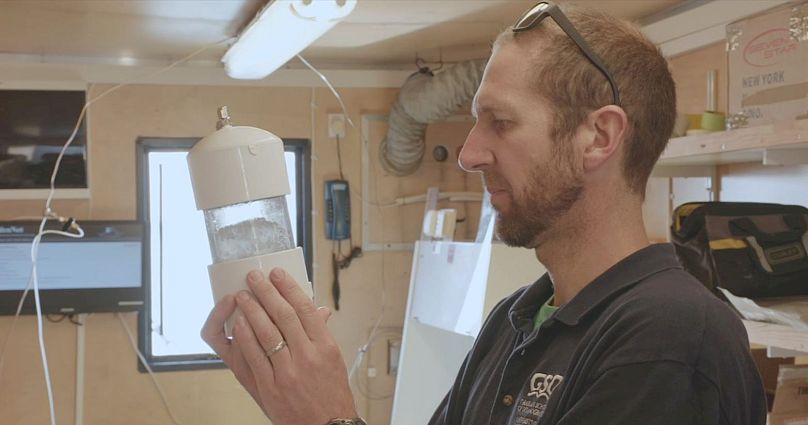Micro-plastic pieces have been found in remote Arctic ice — the latest indication of how far pollution has spread across the planet.
Micro-plastic pieces have been found in ice samples taken from a remote stretch of the Arctic — the latest indication of how far pollution has spread across the planet.
 ADVERTISEMENT
ADVERTISEMENT
 ADVERTISEMENT
ADVERTISEMENT
The contamination was found in ice cores drilled in the Canadian Arctic by a team of scientists.
The researchers found that the plastic was much more abundant in ice floes than in the surrounding water, suggesting the ice acts as a filter for particles arriving on air masses or sea currents.
Brice Loose, an oceanographer at the University of Rhode Island and chief scientist of the expedition, known as the Northwest Passage Project, said the amount of plastic they found was “remarkable … maybe a little bit of a shock to all of us.”
“Beads, almost like the microbeads that show up in shampoo and exfoliating body wash, those kinds of things were really abundant in the ice, much more abundant than in the water,” he told a recording of Science Friday.
The scientists found the material trapped in ice taken from Lancaster Sound, an isolated stretch of water which they had assumed might be relatively sheltered from drifting plastic pollution The team drew 18 ice cores of up to two metres in length from four locations, and saw visible plastic beads and filaments of various shapes and sizes.
The researchers used a helicopter to land on ice floes and retrieve the samples during an 18-day icebreaker expedition through the Northwest Passage, the hazardous route linking the Pacific and Atlantic Oceans.
"We had spent weeks looking out at what looks so much like pristine white sea ice floating out on the ocean," said Jacob Strock, a graduate student researcher at the University of Rhode Island, who conducted an initial onboard analysis of the cores.
"When we look at it up close and we see that it’s all very, very visibly contaminated when you look at it with the right tools — it felt a little bit like a punch in the gut,” he told Reuters.
The scientists' dismay is reminiscent of the consternation felt by explorers who found plastic waste in the Pacific Ocean's Marianas Trench, the deepest place on Earth, during submarine dives earlier this year.
The Northwest Passage Project is primarily focused on investigating the impact of manmade climate change on the Arctic, whose role as the planet's cooling system is being compromised by the rapid vanishing of summer sea ice.
But the plastic fragments also served to highlight how the waste problem has reached epidemic proportions. The United Nations estimates that 100 million tonnes of plastic have been dumped in the oceans to date.
The researchers said the ice they sampled appeared to be at least a year old and had probably drifted into Lancaster Sound from more central regions of the Arctic.
The team plans to subject the plastic they retrieved to further analysis to support a broader research effort to understand the damage plastic is doing to fish, seabirds and large ocean mammals such as whales.
Funded by the National Science Foundation and the Heising-Simons Foundation in the United States, the expedition in the Swedish icebreaker The Oden ran from July 18 to August 4 and covered some 2,000 nautical miles.












